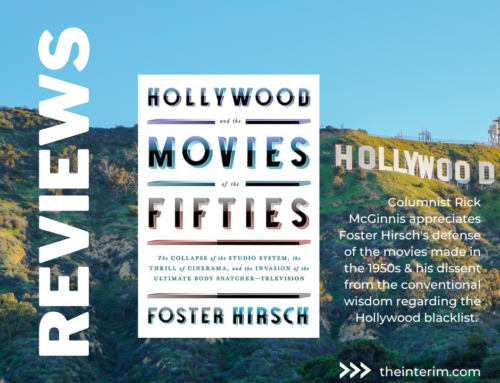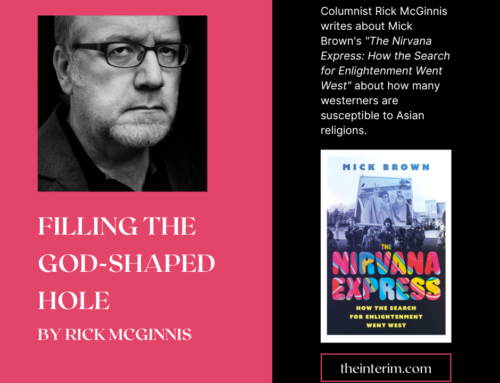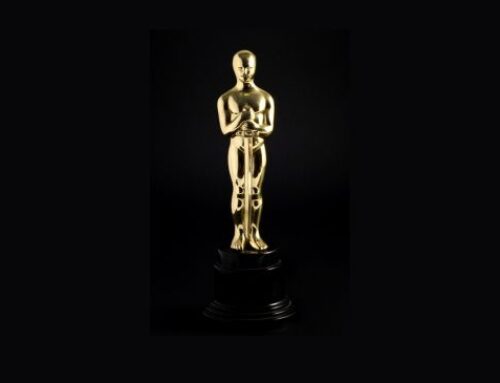 I’m writing this column at the end of what has to be one of the least interesting summers in movie history. To make matters worse – if you work for a Hollywood studio – it’s also been one of the least profitable, but that doesn’t mean that movies aren’t important. As the Middle East erupted into bloody riots that took the life of the U.S. ambassador to Libya, among others, it would appear that, at least on the surface, some movies still matter.
I’m writing this column at the end of what has to be one of the least interesting summers in movie history. To make matters worse – if you work for a Hollywood studio – it’s also been one of the least profitable, but that doesn’t mean that movies aren’t important. As the Middle East erupted into bloody riots that took the life of the U.S. ambassador to Libya, among others, it would appear that, at least on the surface, some movies still matter.
A Reuters story published nine days into September reported that no film released that weekend had made more than US$10 million, making it the worst weekend since box office numbers crashed in the wake of the Sept. 11, 2001 attacks. A Hollywood Reporter piece from the previous week was even less cheery, noting that the summer’s domestic box office was down a million ticket buyers, with revenues dropping more than US$120 million dollars, the worst turnout since 1993.
(The summer of ’93, just to jog your memory, saw the release of Jurassic Park, The Fugitive and Sleepless In Seattle, but also Last Action Hero, Super Mario Bros. and Coneheads. This summer had box office hits like The Avengers and Dark Knight Rises, but was ultimately brought down by bombs like Battleship, Rock Of Ages, Dark Shadows, Total Recall and Abraham Lincoln: Vampire Hunter.)
The peaks probably seem more notable thanks to the dismal performance by their competition, but while it’s still fresh in your memory, it’s worth remembering the relentless, total saturation publicity campaigns waged by the two big winners, and wonder how much of their profits were sacrificed to making you think you’d actually seen these films even if you’d stayed at the cottage all summer.
For myself, I have to admit that my enthusiasm for moviegoing is at an all-time low in the nearly three decades I’ve been writing about films. At the beginning of the year, anticipation for Prometheus, Ridley Scott’s prequel to his 1979 breakthrough film Alien, was making me frantic for the summer to arrive, but by the time the film actually premiered to lukewarm reviews in early June, I found myself willing to wait till it came out on disc. Nothing tempted me out to the theatres all summer, and apparently my apathy wasn’t unique.
But just as the bad box office news rolled in, something happened that proved that movies can still be important, even if nobody wants to see them. On the anniversary of September 11th, an ongoing demonstration outside the U.S. embassy in Cairo turned into a full scale riot that quickly spread across the Middle East and into Europe, Asia and Australia. The obvious significance of the date was quickly obscured when news organizations began reporting that the apparent cause was a film, The Innocence of Muslims, which nobody had heard of, and which only existed on YouTube at that point as a 14-minute excerpt.
What could be seen of the film was a critique of the life of Mohammed delivered in a style equal parts pantomime and ‘80s music video. The identity of the filmmaker was obscure, and even when it was revealed to be a Coptic Christian and ex-felon living in California named Nakoula Basseley Nakoula, the confusion about both the director and the film’s funding guarantee that conspiracy theories will persist for years. Even though it had only been screened in theatres twice to a handful of people, and languished in obscurity on the internet for weeks, western media bought the line that it was a grievous wound to Muslim pride, a charge that was amplified when an organized attack on the U.S. embassy in Benghazi resulted in the death of four staffers, including the ambassador to Libya.
The grisly farce was ramped up when the White House asked YouTube to take down the clips (they haven’t as of this writing) and no less than the chairman of the Joint Chiefs of Staff called Terry Jones, the controversy-courting, Koran-burning Florida pastor, to ask him to withdraw his support for the film. By the time Nakoula was taken into custody by police, serious questions were being asked about the apparent willingness of the Obama administration to abrogate the First Amendment while doing damage control on a red herring.
The absurdity of the idea that a few scenes from an unseen movie polemic were the spark that ignited a global incident was summed up in a headline by Australian columnist Tim Blair: “Four dead in film review.” Some Christians, recalling the indifference and even derision that met their protests against films like Hail Mary, The Last Temptation of Christ, Dogma and Life of Brian, could be excused for wondering if they might have been taken a bit more seriously if they’d thrown a rock or two.
Make no mistake, the film is bad, though that’s neither surprising or even relevant. It looks like nothing less than a movie made by someone who’d only ever read a description of a movie trailer, and no less than author Salman Rushdie called it a “piece of garbage” during an interview to promote a memoir about his time in hiding from the fatwa, or bounty, put on his head back in 1988. Rushdie admitted, however, that he had no sympathy for the director while Iran, caught up the enthusiasm of the current wave of protests, promptly increased their fatwa on him to $3.3 million.
As Oscar season approaches, the most notable film in the world right now is a film that’s made no money and that no one likes or wants to see, which actually compares it favorably to most of the films nominated for Academy Awards last year. Still, we live in a time when a one-time meth cook and fraudster can do what any other Californian dreams of doing – make a movie – with the hope that they just might, if the stars align, set the world on fire.




